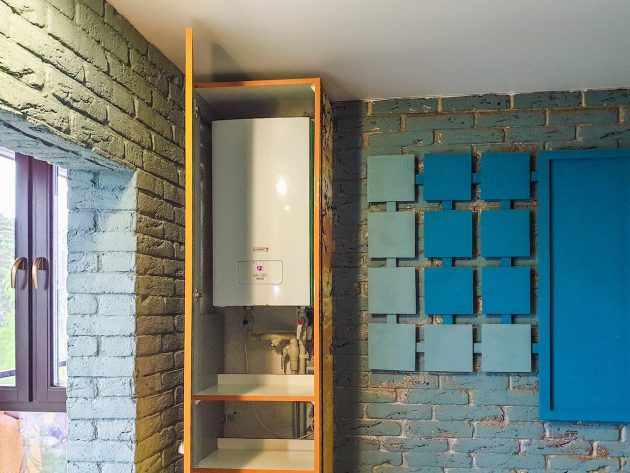If your water heater is leaking, the first step in troubleshooting is to identify the source of the leak. Learn about common causes and steps to take before calling for repairs.
Are you grappling with a water heater issue? We know how much of a headache it can be to try and fix an unexpected hot water problem.
Water heaters typically last around 8–12 years, but if yours is leaking or malfunctioning, it could mean that your water heater’s lifespan is ending sooner rather than later.
With that in mind, we wanted to give you some expert tips on what to do when dealing with a faulty water heater.
Whether the hot water system needs repair or even replacement, read on for information about assessing if your Layton area home needs new plumbing services!
Identify the source of the water leak. Is it coming from your faucet, sink, showerhead, or water heater?
Water leaks can be a nuisance, often sneaking up on us without warning. If you have noticed water pooling on your floor or strange sounds coming from your pipes, it’s important to identify the source of the leak as soon as possible.
Is it a faulty faucet, a leaky sink, a worn-out showerhead, or perhaps even a problem with your water heater unit? Each of these possibilities requires a different solution, so it’s crucial to pinpoint the source before taking action.
Don’t let a small leak become a big problem and headache. Get to the root of the issue and fix it before it’s too late.
Check for loose valves and connections. Look for any loose valves or connections that could be causing the leak.
When it comes to checking for leaks, one crucial step is to inspect valves and connections that could be loose. Failing to do so may leave you scratching your head and wondering why your efforts to fix the leak were unsuccessful.
Even the slightest looseness in a valve or connection can lead to a significant leak in the long run.
With careful attention and a thorough examination, you’ll be able to detect and address any potential issues before they become significant problems.
Turn off the power to the hot water heater. Doing this will help prevent a potential electrical hazard and reduce water damage.
Imagine coming home from a long day’s work and standing in a flooded bathroom with water up to your ankles. Not only is this a massive inconvenience, but it can also be potentially dangerous if electrical appliances are involved.
One way to prevent this nightmare scenario is to turn off the power to your water heater. By doing so, you not only reduce the risk of an electrical hazard, but also minimize the amount of water damage that can occur if a leak were to happen.
It’s a small precautionary step that can save you time, money, and stress in the long run.
Examine hoses and pipes for damage or corrosion. If there is visible damage on any hoses or pipes leading to or from the heater, replace them immediately.
When it comes to keeping your heater functioning properly, it’s important to examine the hoses and pipes for any signs of damage or corrosion. These crucial components are responsible for delivering hot water or steam to your home; if they’re compromised, your heating system won’t work as efficiently as it should.
Don’t take any chances when it comes to the safety and comfort of your family. If you notice any visible damage or signs of corrosion on the hoses or pipes leading to or from your heater, you must immediately replace them.
Check for cracks in the tank. If you find a crack in your tank, it’s likely time for a replacement.
Your water tank is a crucial element of your household’s plumbing system, ensuring that you have a consistent supply of clean water.
However, if you notice any cracks in the tank, it’s time to take action. Cracks in a tank can lead to leaks, which can cause water damage and even pose a health risk if left unaddressed.
Don’t wait until it’s too late; watch for any signs of wear and tear on your tank. After all, a healthy tank means healthy water for you and your family.
Contact a local plumbing professional in Layton to assess your water heater troubleshooting problem and provide an estimate for repair costs.
When it comes to your water heater, it’s important to address any issues quickly to prevent further damage or potential safety hazards. That’s why contacting a water heater repair in Layton is smart. Not only can they assess your troubleshooting problem with ease, but they can also provide an estimate for repair costs.
This allows you to make an informed decision about how to proceed. And with the expertise and knowledge of a plumbing professional, you can trust that your water heater will be fixed properly the first time around.
Don’t let your water heater troubles linger; contact a local expert today.
Taking the time to troubleshoot your water heater is essential for keeping your home safe and well-maintained.
Remember that the slightest leak can lead to major water damage, so it’s important to act quickly upon signs of leaking. Don’t forget to turn off the power to prevent electrical hazards from happening either.
If none of these solutions solve your issue, it might be best to contact a professional plumbing company in Layton for assistance. With their expertise, you can rest assured that they will find the most efficient and cost-effective solution for repairing your water heater.
Should you experience any additional water heater issues in the future, use this blog as a guide to help troubleshoot them successfully!

